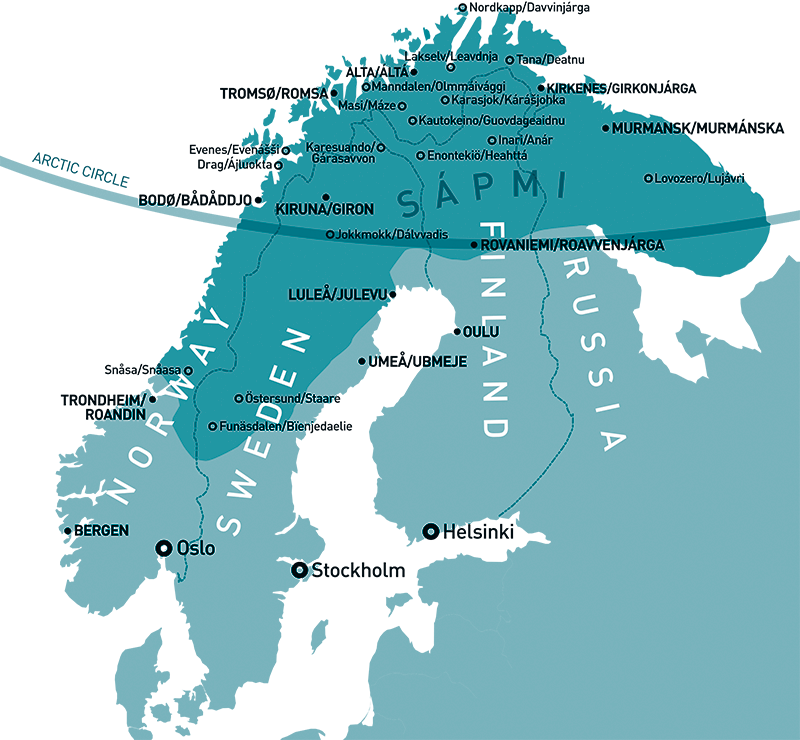Sami Music and Social Policy Connotations: International Symposium, Yoik Workshop, and Concert
The Sami are an ethnic group indigenous to the cultural region known as Sápmi, which is situated near the Arctic Circle in Sweden, Norway, Finland, and parts of Russia—and while their history is characterised by discrimination, they are now playing an increasingly prominent role in the political discourses and musical representation of the Nordic countries. In the spheres of both political action and ethnomusicological research, indigenous populations are typically part of the discourses on minorities. And for this reason, their music is tied closely in a thematic sense to the emphasis on “Music and Minorities” at the Department of Folk Music Research and Ethnomusicology.

Indigenous people are often viewed as being “exotic” to a certain extent, and their musical expressions, in particular, are frequently subject to diverse clichés. This stems from the fact that, in such indigenous societies, music served ritual or cultic functions in the past and occasionally still does today. In fact, the word “music” does not even exist in most indigenous languages. So the aforementioned cultic functions are highly attractive for all forms of esoteric instrumentalisation, with indigenous music thus being associated with shamanism and animist religions and quite generally standing for “spirituality”. The “yoik” of the Sami is one such type of music. Yoik is a Sami vocal genre that is tied closely to the group’s homeland and its natural environment; it is improvisation-based and used to play a major role in shamanism. This was the reason why, over the course of history, yoik was subject to repeated bans—especially by the Church. The symposium Sami Music – Sonic Politics in the European North will now take a closer look at the history of bans on this music as well as at the fascination that has emanated from yoik and had an impact on archival holdings. It is also about contemporary political instrumentalisation and representation, since today, the yoik is present in many genres of art music and popular music, even having played a role at the Eurovision Song Contest. And finally, in light of the discourses on indigenous musical genres, society’s negotiation of power relations will be portrayed in the loaded context of minorities and majorities. Six international experts have agreed to participate and will present this material in the form of lectures with subsequent discussions.
As important as its socio-political embedding may be, it still seems equally important to place the music itself front and centre. Therefore, this symposium will also include a yoik workshop and a concert courtesy of musicians who are themselves members of this minority.
- Detailed programme at: www.mdw.ac.at/ive/sami

